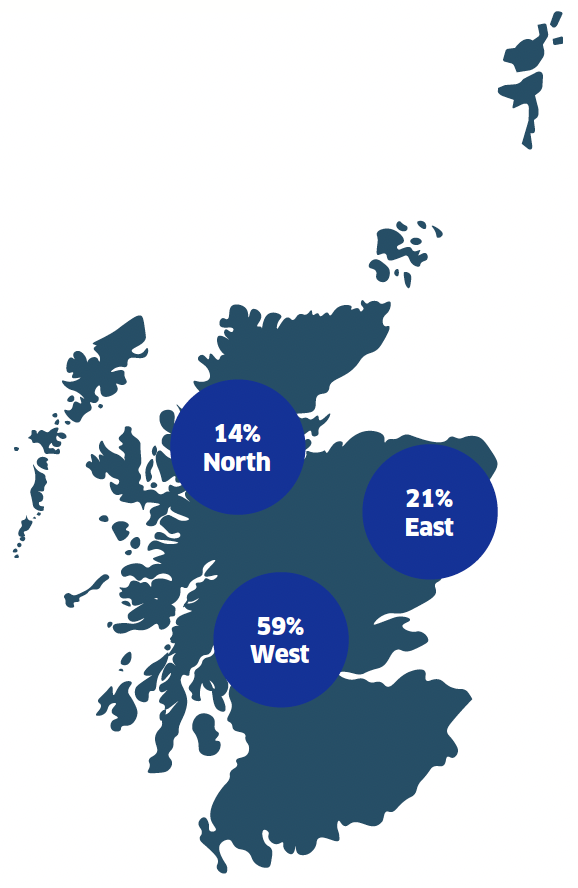Serious Organised Crime Taskforce: progress report 2024
This progress report details some of the advances made by the Serious Organised Crime Taskforce and its partners.
What serious organised crime looks like in Scotland
Serious organised crime (SOC) is defined in Scotland’s SOC Strategy as crime which:
- involves more than one person;
- is organised, meaning that it involves control, planning and, potentially, use of specialist resources;
- causes, or has the potential to cause, significant harm; and
- involves financial or other benefit to the individuals concerned.
This broad definition means that SOC presents in many forms, including drugs, violence, human trafficking, child sexual abuse, cybercrime including fraud and more.
In Scotland, SOC is responsible for causing substantial economic and social harm to individuals, businesses, and communities. The aim of the SOC Strategy is to reduce SOC and the harm it causes in Scotland.
At the end of March 2024, 90 Serious Organised Crime Groups (SOCGs) were recorded as operating in Scotland, comprising 1,421 individuals.
- Within the three main policing areas in Scotland, 59% of SOCGs are located in the west, 21% in the east and 14% in the north. 6% are national.
- 62% of SOCGs are involved in drug crime; cocaine and cannabis are the most common commodities.
- 62% of SOCGs are involved in the use of seemingly legitimate businesses. Property development remains the most common business sector for SOCGs. This is closely followed by vehicle maintenance, taxis, retail, restaurants and environmental sectors.
As at end of March 2024, there were 158 SOC nominals incarcerated within 14 of the 15 prison establishments in Scotland. These individuals are linked to 42 separate SOCGs.

Contact
Email: OrganisedCrimeUnit@gov.scot
There is a problem
Thanks for your feedback